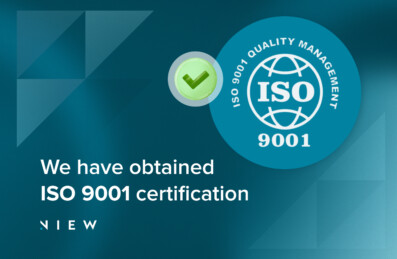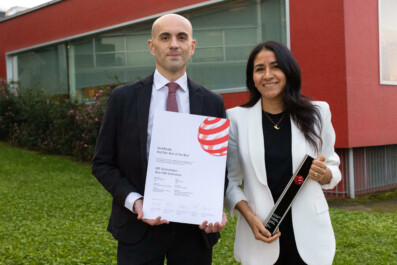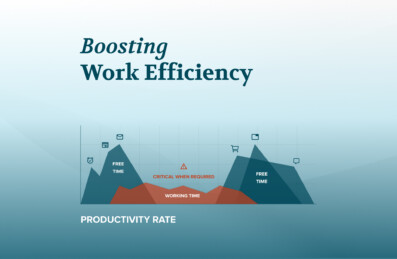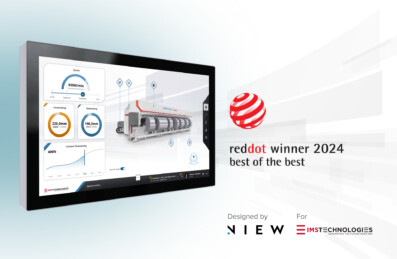

Getting to know AI: the market in Italy
Anitec-Assinform 2023 – 2027 Report
The AI market in Italy
AI is emerging globally as a strategic technology with a growing impact on the economy and competitiveness of companies.
According to the report presented by Anitec-Assinform last January, the artificial intelligence market in Italy is booming: in 2023 it reached a value of 674 million euros, registering a 55 percent increase over the previous year with forecasts indicating growth to 1.802 billion euros in 2027.
This evolution is mainly driven by large enterprises where the adoption rate reaches 32.5 percent, while among SMEs it remains static at 7.7 percent.
Among the most advanced sectors in AI adoption are banking, telecommunications, healthcare and industry.
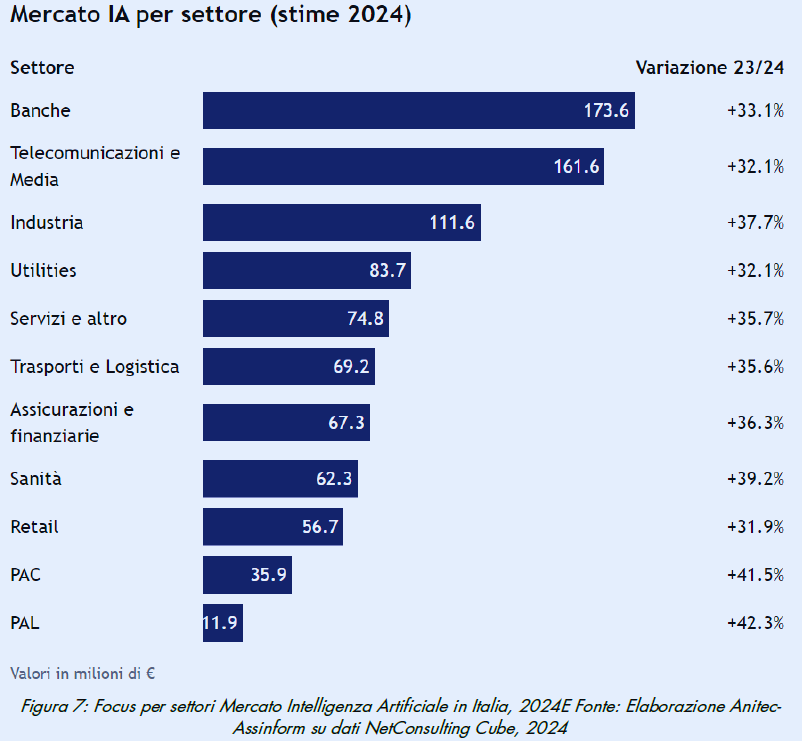
Report focus on the manufacturing sector
In recent years, the manufacturing sector has been facing significant challenges pushing toward models of sustainability and technological innovation. In this context, digital transition is the main driver of transformation, with a focus on operational efficiency and data collection through IoT and Edge IoT sensors. This data feeds machine learning systems with applications ranging from predictive and prescriptive maintenance to optimizing energy and raw material consumption to improving manufacturing performance and workplace safety.
The introduction of advanced technologies such as Large Language Models (LLM) opens up unprecedented scenarios for manufacturing, with solutions that read correlations in data to suggest targeted actions and decisions. These systems offer a significant advantage, especially for SMEs, as they enable the use of AI without requiring advanced data analytics skills
AI applications support the transition to Industry 5.0 and environmental sustainability by providing tools to calculate the ecological footprint of products (CO₂, H₂O), improve life cycle assessment (LCA) and environmental product declarations (EPDs).
A further development concerns the OEM market, which is moving toward servitization models. In order to offer “renting” formulas based on the actual use of machinery, it will be essential to collect real data that can be used for AI solutions capable of generating dynamic and customized business offers.
In the manufacturing sector, AI therefore plays a crucial role in process optimization, sustainability and the creation of new business models, but it is crucial to understand that it is not a commodity: to generate real value, it requires tailored solutions that meet the specific production and strategic needs of each company.
